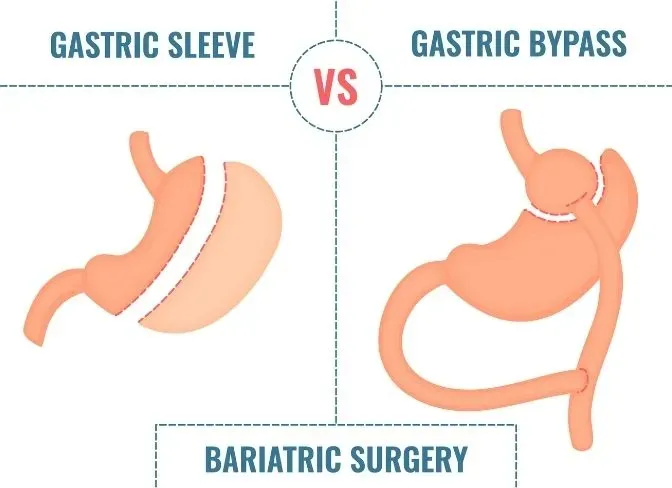Bipolar Disorder, commonly known as manic-depressive disease, is a mental disorder in which a person’s mood fluctuates between two extremes, eventually affecting the person’s quality of life significantly. It affects two out of every hundred persons.
Even though no cause-effect connection has been shown, there is a substantial link between fat and depression and bipolar illness. Medications used to treat psychiatric problems are also known to promote weight gain.
It is typical to notice mood swings in everyday life. These shifts, however, may not be directly tied to stress or external circumstances in bipolar illness and may remain long enough to affect the person’s family, job, and social life. It is a dangerous condition that, if left untreated, can result in suicide.
During the depression period, there could be a lack of enjoyment from usual activities, a decrease in desire and interest an increase or decrease in sleep patterns, deterioration in appetite in two ways, chronic sadness, a sense of guilt, a decrease in awareness, loss of memory, a decrease in self-confidence, and suicide attempts.
During the manic period, there is an increase in energy and activity, an increase in thinking and talking speed, disproportionate spending of money, an increase in self-confidence and plans for the future, impulsive behaviors, happiness and euphoria that is incompatible with the situation, and a decrease in the desire to sleep notwithstanding less sleep. Because the patient is typically content with his condition throughout the manic phase, he does not recognize it as a sickness and resists therapy. If not treated early on, it can also affect his eating habits and therefore triggers weight gain.
The disease often begins between the ages of 15 and 30, and individuals who are older may have another underlying cause. All patients should have anemia, vitamin D insufficiency, vitamin B12 deficiency, folic acid deficiency, and thyroid function testing performed. The primary treatment options are regular drug usage and psychotherapy. Medication may include antipsychotic, antidepressant, or mood stabilizer medicines. Treatment adherence is critical for treating symptoms and minimizing episodes.
Because there is no one cause of obesity, there is no single proper response to improving health and well-being. However, there is evidence that bariatric surgery improves mental health in patients with bipolar illness. Patients with bipolar illness had the same success rates as the general population following bariatric surgery. In other words, having bipolar does not increase the risk of bariatric surgery.
In conclusion, children and adolescents suffering from serious depression or bipolar illness are at a greater risk of becoming obese. Patients considering bariatric surgery have significant rates of depression and bipolar illness. Obesity is linked to serious depression, particularly in women. In both men and women, abdominal obesity is associated with depressed symptoms.
Based on a Harvard University research, the majority of bariatric surgery patients suffer from mood problems such as despair and anxiety. Serious weight loss with surgery improves mood as well. One year following surgery, depression and anxiety have greatly improved. However, it tends to rise after 2-5 years. Some studies also suggest that there may be an increase in suicidal inclinations over time. Because the absorption of medications used to treat bipolar individuals might vary, extremely careful dosage modification is essential. As a result, patients with mental problems such as depression, panic attacks, and bipolar disorder must have surgery at competent clinics specializing in bariatric surgery and be thoroughly monitored by a psychologist.
Bariatric Surgery for People Who Diagnosed Bipolar Disorder in Turkey
If you have recently been diagnosed with bipolar disorder or are being treated for bipolar disorder, this does not mean that you cannot always have one of the bariatric surgery treatments. First of all your coordinator will show the medications you use to the psychiatrist and get his opions. Some psychological medications should be stopped before the surgery and these information will be given by the psychiatrist and the surgeon together. A patient with bipolar diagnosis should consult their psychiatrist to get a confirmation that their mental status is stable. When you come here, your health status also should be checked and whether your mental mood control has been provided by treatment should be investigated by a doctor.
In these studies, general surgeons carry out a joint process with psychiatrists. In this way, a comprehensive look at whether you can have surgery or not. We also recommend that you come to our clinic with a companion to feel more comfortable.
How is the Process?
When you make your appointment, we book a luxury hotel room for you and your companion. When you arrive at the airport, your private driver will meet you and allow you to reach your hotel comfortably with your belongings. The same is true on the way back to the airport.
To feel rested, you must arrive the day before your appointment. After resting at your hotel, you will meet your doctor and all necessary health checks will be done. If it is decided as a result of the tests that your health condition does not carry any psychiatric or physiological risk in this process, your operation date will be determined. Your general surgeon will operate on you in one of Turkey’s most prestigious and fully equipped hospitals. Your post-op care process will also take place in this hospital.
For more detailed information, you can contact to our cordinator of CatchLife Obesity Department +90 541 229 12 32. You can reach us at any time and get free information.






Get Free Quote